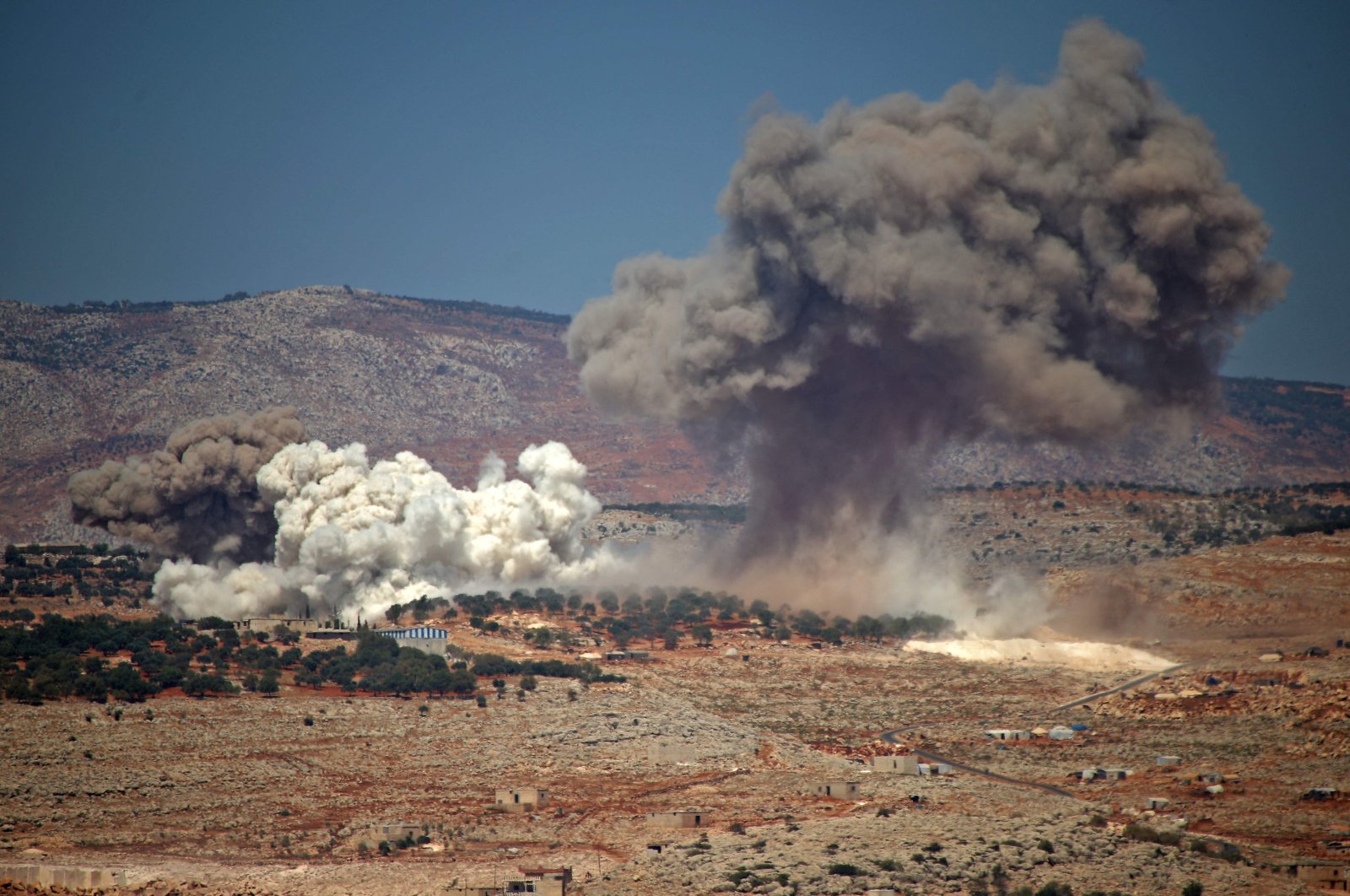Alwaght- Along with Turkish signals of tendency to diplomacy path with the Syrian government in recent weeks, attacks and movement of forces in Idlib province as the last stronghold of Turkish-backed terrorists in northwestern Syria have increased.
Only in the past few weeks, media sources have reported several times of bombardment of terrorist positions in Idlib by Russian fighter jets.
According to a report, on August 22, Russian warplanes carried out several airstrikes in the western outskirts of the city of Idlib against terrorist positions.
Al-Monitor website quoted its sources as saying that Russian Sukhoi-34 planes targeted "13 times" the western suburbs of Idlib city on September 1.
Official Syrian news agency, SANA, also quoted the deputy head of the Russian Military Coordination Center in Hmeimim as saying that in the operation of September 8, 20 ringleaders of Nusra Front terrorist group were killed and observation posts, drones, and rocket launchers were destroyed.
Sirajuddin Mokhtarov, with nom de guerre Bu Salouh, the commander of Al-Tawhid and Al-Jihad Brigade of NusraFront, along with a number of others, was killed by the Russians strikes.
The Russian Ministry of Defense stated on Thursday night that it targeted and completely destroyed Nusra Front'a camp in Idlib province in an airstrike that killed 120 terrorists.
These air raids have been among the most severe attacks on terrorists in Idlib since the beginning of Russia's special military operations in Ukraine.
The new Russian airstrikes took place after the terrorist group's fighters violated the ceasefire in the de-escalation zones in northeastern Syria by carrying out two artillery attacks on Idlib and Latakia in the middle of last week. As a result of these artillery attacks, one Syrian soldier was killed and two others were wounded.
Nusra Front terrorists targeted the positions of the Syrian army in the Kafr Nabl town in this artillery attack from the village of Kansafra in Idlib province.
Turkish silence and terrorists' worries about an Erdogan deal
During the meeting between Turkish President Recep Tayyip Erdogan and Russian President Vladimir Putin in Sochi in May 2017, the two leaders decided to establish four de-escalation zones in Syria. One of these zones is Idlib.
Since then, despite its commitments, Ankara could not distinguish between the so-called moderate groups supported by it and the UN-designated terrorist groups, such as the Tahrir al-Sham, and provide the ground for the suppression of terrorists.
Now, due to the failure of past policies and the need to change its approach to the developments in Syria, Erdogan's government is inclined to open the door of diplomacy and dialogue with Damascus. But these terrorist groups that see their survival in danger are escalating tensions to disturb possible dialogue between Ankara and Damascus— a reason for Moscow to supresss these groups in Idlib to start as soon as possible talks between Syria and Turkey.
Additionally, towns in northern Hama have always provided a launching pad for combat drones flying to strike Russian-run Hmeimim base in Latakia province. Moscow needs to move to Idlib to get rid of these threats and move closer to the borders.
Also it is unignorable that a stable governance of the terrorists in Idlib will practically encourage them to send forces to Ukraine to fight Russia in a bid to win the favor ,and indeed aids, of the West— something raised by the Russians several times in recent months. So, a showdown in Idlib can block the path of Idlib-originated terrorists to Ukraine fronts and allow more Russian focus on its campaign.
Meanwhile, the Turkish-backed Syrian opposition and terrorist groups are worried that Erdogan has used Idlib as a playing card on the negotiating table with Damascus due to the fact that he is busy with the Turkish presidential election that will be held next summer.
One of the main issues that the Turkish leader focuses on in the developments in Idlib and the general change of approach in Syria is the refugee challenge. In the Sochi agreement, which was signed in September 2018, it was agreed that tens of thousands of displaced people living in the border strip will be returned to their regions. Now, a year to next presidential elections and in the country's bad economic conditions, Erdogan is strongly under pressure from the opposition to speed up the process of returning Syrian refugees to their country, and therefore, in the midst of Moscow and Tehran's opposition to conducting new military operations in Syria, he needs Damascus cooperation for settlement of the refugees.
Realizing this cooperation will advance the second decisive reason for Turkish presence in Idlib which is undermining the Kurdish belt on the northern Syria borders.
With regard to these conditions, the new wave of the Russian attacks did not meet a serious Turkish reaction, making the terrorists pessimistic about the Turkish presence in the last round of Astana peace process in Tehran.
At the same time, the terrorists are having internal tensions currently. Some are still loyal to Turkey despite criticism while others are betting on a Qatari role for closeness to the West.
Given these political developments, the past Turkish-Russian agreements on ceasefire in Idlib can be subject to review and change and can totally transform Idlib crisis picture.



























